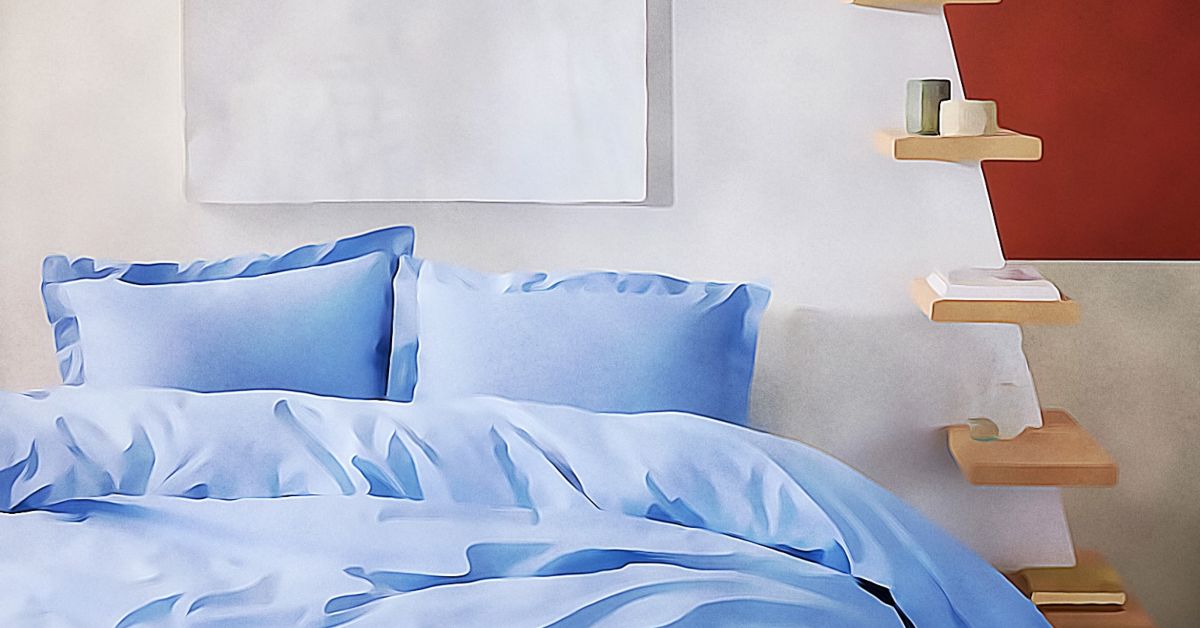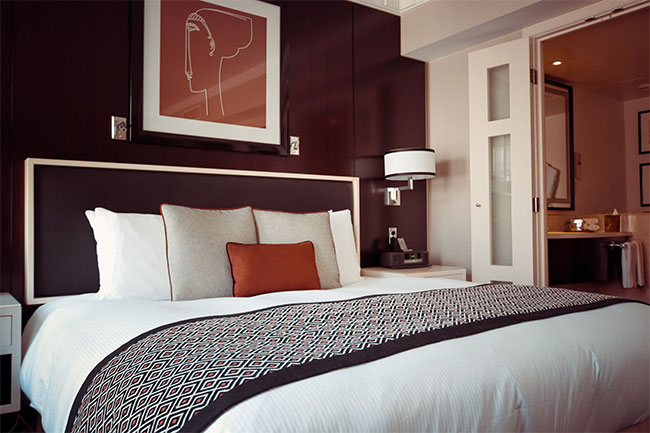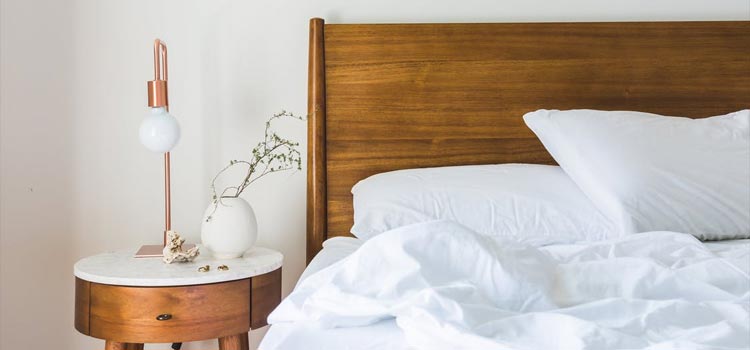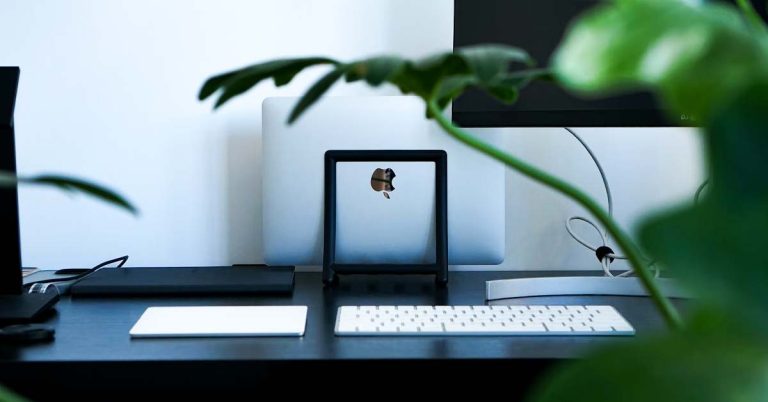Imagine getting paid to sleep. Isn’t this the dream? (Hah! Couldn’t resist.)
- Inbox Dollars - Get paid to check your email. $5 bonus just for signing up!
- Survey Junkie - The #1 survey site that doesn't suck. Short surveys, high payouts, simply the best.
- Nielsen - Download their app and get paid $50!
Believe it or not, there truly are ways to make money while sleeping.
Opportunities may be rare, but they’re out there.
Interested?
Read on to learn all you need to know to make money in your sleep.
1. Get Paid to Sleep by Participating in Sleep Studies
What are sleep studies?
Getting involved in paid sleep studies is the best way to make money in your sleep.
Well, why are researchers conducting sleep studies in the first place?
Well, the majority of these sleep studies help develop and discover treatment options for sleep-related problems.
Mattress companies, health app developers, wearable fitness tracker manufacturers, and the like have studied and tracked people’s sleep habits in the past.
Hospitals even have entire departments dedicated to figuring out how to tackle sleep problems.
What’s cool is that these studies are currently being conducted in places all over the country.
And you might get hired even if you don’t have sleep apnea, insomnia, narcolepsy, periodic limb movement disorder (PLMD), or other sleep-related problems.
To get paid to join sleep studies, you first need to check if there are available trials locally (we list the sites further down this section).
Sleep studies look for volunteers within a specific age range, weight, or sometimes gender.
In some cases, you should also have sleep apnea or other specific medical requirements to participate in the study.
Carefully read the criteria of each sleep study listed and make sure you’re eligible. Don’t even consider making up a sleep disorder or faking sleep difficulties just to get paid to sleep.
Learn what you’re signing up for before you fill out and send an application. Read up on the duration of in-hospital stays, payment terms, and other details.
Where to find sleep studies
Many sleep studies fall under paid clinical studies.
Here are a few websites and resources where you can search for sleep studies to participate in.
ClinicalTrials.gov is a Web-based resource where patients, health care professionals, lab researchers, and the general public can access information on clinical studies on a wide variety of diseases and conditions.
Use the search filters to find actively recruiting and about-to-recruit studies (as opposed to already completed studies) with the keyword “sleep.”
CenterWatch is one of the largest online databases of clinical trials, where patients and caregivers can get information on the latest clinical trials.
You can filter the search for the “sleep” keyword and specify your location to see a list of trials in your area.
No joke. Here are the fastest ways to make easy money online. Click here to see how.
Aside from this search function, you can also register to be a volunteer so you can be notified through email of any sleep-related trial coming up.
The Mayo Clinic is known as one of the best medical centers in the world, integrating health care, education, and research.
Their Sleep Medicine division currently handles 14 open studies in various clinics in the country.
This branch of Harvard Medical School regularly recruits both completely healthy people and those suffering from sleep disorders to come to their research facility for testing.
Most studies pay you to sleep onsite overnight with pay ranging from $100 to $350 per night spent in their research labs.
Developed by Mass General Brigham Research, Rally is an online platform to connect the right subjects to the right paid sleep clinical research trials.
Like Harvard, the hospitals often hosting the studies on Rally are based in Boston.
If you’re based in Canada, this site is for you.
MedSleep clinics provide consultation and treatment for sleep disorders, as well as conduct research and clinical trials.
Currently, they’re managing clinical trials involving insomnia, weight loss, narcolepsy, sleep apnea, and excessive daytime sleepiness.
What to Expect Once You Land a Spot in a Paid Sleep Study
If you’re accepted to the study, you don’t just begin sleeping at the facility. You still have to complete several tests and interviews, including:
- A physical exam — this involves the typical cup-peeing and blood-sampling tests
- A psychological exam — a test or interview so doctors can determine if you can handle the stress involved in the study
- Other sleep-related exams — to confirm your sleep problems (if any) and determine their severity
While there isn’t any actual sleeping just yet, you’d be pleased to know that you will still be paid for your time just by completing the final assessment phase.
Plus, the physical examination and lab procedures are normally free, so if anything, you get an idea of where your physical health is at.
After passing the exams, you’ll be given several assignments to complete.
This may include wearing a fitness device to track your activity, listing down food intake throughout the duration of your trial, keeping a sleep log, or other types of documentation that the study requires.
In most cases, you’ll be assigned a contact person who will tell you everything you need to know and remind you about these requirements. They will see you through the study and work with you so you don’t get kicked out of the trials.
What Happens During the Sleep Study
Once you start the actual study, you can’t expect the same quality of sleep you get at home in your own bed, with your own sheets, pillows, and blankets.
Here are a few reasons why you might have some trouble sleeping:
Medical devices
Be prepared for a couple of needles throughout the trial.
You can make money from home and it doesn't have to be challenging. Click here to see how.
You will definitely get paid to sleep, but be aware that most participants are required to wear an IV, electrodes, and other medical devices in some parts of the study.
Bedpans may also be needed, since some phases of the study may require you to maintain a constant position.
Challenging sleep requirements
Aside from the IV and other medical devices you must wear, you might also be required to maintain a specific position while sleeping.
This can be challenging since we’re all used to our own sleeping positions, and being forced to change it up can lead to sleepless nights.
Don’t worry though, because you’ll be given all the details of the study before you begin.
So if staying in the same spot for several hours is something you just can’t do, you’d have the chance to back out before the sleep trial begins.
Isolation
Can’t stand a few hours without your phone? How about not knowing the actual time?
As a participant in sleep studies, you’ll be cut off from the outside world.
This means no internet, no phone, no laptops, not even a clock.
In most cases, you won’t even have windows to know if it’s daytime or nighttime.
During the study, the doctors will only tell you what you need to know. They’re in charge of telling you if it’s night or day throughout the study’s observation period.
Depending on the details you’ve signed up for, sleep studies held in a facility may be as short as a couple of days to as long as a month. Most long-term studies are done half at the facility and half at the volunteer’s own homes.
6 Other Careers Where You Get Paid to Sleep
If you’re not a fan of being isolated or poked by needles, you can try to look for a job that pays you to sleep.
Some of these jobs may allow you to sleep overnight, while others may allow you to take a nap during your shift.
Here are a few to get you started.
2. Bed or Mattress Tester
This has got to be one of the most fun product testing jobs out there.
Professional mattress testers, or bed testers, test mattresses and sometimes bedding during the development of these products.
Mattress testers have to sleep on a prototype mattress and then fill out feedback forms or create a report on the comfort level of the mattress.
Aside from mattresses, other things you might be hired to test include blankets, pillows, comforters, and other sleep products.
The first website you should look at to find mattress tester jobs is FlexJobs, where they’ve carefully vetted the companies that list open positions.
If you aren’t successful in finding a job from FlexJobs, you can compile a list of mattress companies yourself through an internet search and initiate contact with them.
3. Hotel Mystery Shopper
Not only will you get paid to sleep with this job, but you’ll also get paid to sleep in style.
Now that the travel and tourism industries are picking back up, there is again a demand for hotel mystery shoppers.
As a hotel mystery shopper, you’ll be expected to act like regular clients throughout the entire process; booking the stay, checking in, staying the room, enjoying the amenities, and checking out.
But you’ll be working all throughout this process: evaluating the booking, check-in, and check-out processes, providing feedback on the staff and their service, observing the quality of the facilities and food, and other aspects of the hotel stay that employers will require.
Depending on the mystery shopper company, you’d either be provided a budget to work with or you’d be required to front the cost and then be reimbursed.
4. Overnight Pet Sitter
Traveling with pets can be stressful and may not always be feasible. Thus, pet owners are in the market for pet sitters who can provide services beyond the usual pet daycare.
They need people who can take care of their pets while they’re out of town.
Here’s where overnight pet sitters come in.
You can either work as a two-in-one house sitter and pet sitter to stay in their house and take care of both the house and their pet.
However, another option is that you can host pets in your own home overnight. This is sought after by pet owners who will be out for only a night, or for those who will be out for a few days but for whom house sitting won’t work.
When you host pets in your home, you get paid to sleep in your own home, in your own bed.
Start your gig search with pet sitting companies like Rover.
5. Overnight Caregiver
Some families may need babysitters for overnight shifts, while other families may need overnight carers for elderly, sick, or injured family members.
Overnight caregivers are generally allowed to sleep while their wards or patients sleep, as long as they are quickly alert to administer care during the night, such as giving night feedings to infants, dispensing time-sensitive medications to sick patients, or changing bandages of injured patients.
Other duties that may be expected from overnight caregivers include preparing snacks or simple meals, light housekeeping (e.g., tidying away toys, emptying trash, making beds, etc.), and providing companionship or activities.
Start your search for these jobs on websites like Care.com, which lists down all the local opportunities in your area.
6. Become a Sleep Professional
Studying sleep development is a wide field.
If you’re planning to switch careers or deciding on one, you can become a sleep professional. Here are some career options:
- Sleep coaching and consulting – Get certified as a sleep coach and help others improve their quality of sleep. You can provide consulting and coaching either face-to-face or remotely.
- Sleep app programmer, QA, engineer, etc. – Work in the sleep technology development industry, if you’re skilled in app development, quality assurance, engineering, and other relevant skills.
7. Make Sleep-themed Content
Sometimes, you don’t even need to go outside your home to get paid to sleep.
The internet gives anyone opportunities to turn your precious slumber into cold, hard cash. You can do this by:
- Creating a YouTube channel – Unbox sleep assistance gadgets, discuss sleep techniques, and talk about other sleep-related topics. You can monetize your YouTube channel with ads.
- Starting a sleep-themed blog – Review sleep assistance products, educate people about sleep technologies, coach on sleeping, and talk about various sleep-related issues. You can monetize your blog with ads, sponsorships and affiliate marketing.
- Building a community on social media – You can monetize communities with memberships (for premium content), affiliate marketing, and sponsorships.
What makes these options great is that you can focus on just one, or do all 3 at the same time, which in turn, triples your sources of income.
Creating sleep-themed content online is also considered passive income, so as long as you’re consistently pushing out helpful content, you’re bound to make money from your work.
How Much Can You Earn From Sleeping?
Now that you have an idea of what jobs pay you to sleep, let’s take a look at how much you can potentially make from these jobs or gigs.
Sleep studies normally pay you per day or per task during the assessment phase, which includes the exams, interviews, and other assessment activities during the application period.
During the actual study in a sleep clinic, the average pay is around $4k to $6k for a 5-day to a week-long study. A 30-day study can go for $10k or more.
For rare cases when you can sleep at home, the average pay is around $150 to $200.
As for the other jobs and gigs on the list, the pay varies widely depending on the company hiring, how long you need to do the job for, and how many other factors.
Get Paid to Sleep Today!
It doesn’t have to be a pipe dream anymore; you can now really get paid to sleep.
Go through the opportunities on your list, find the ones that fit your personality and lifestyle (and maybe sleep disorder) and dream your way toward that cash!
Did you know you can also get paid to cuddle and get paid to do nothing?






